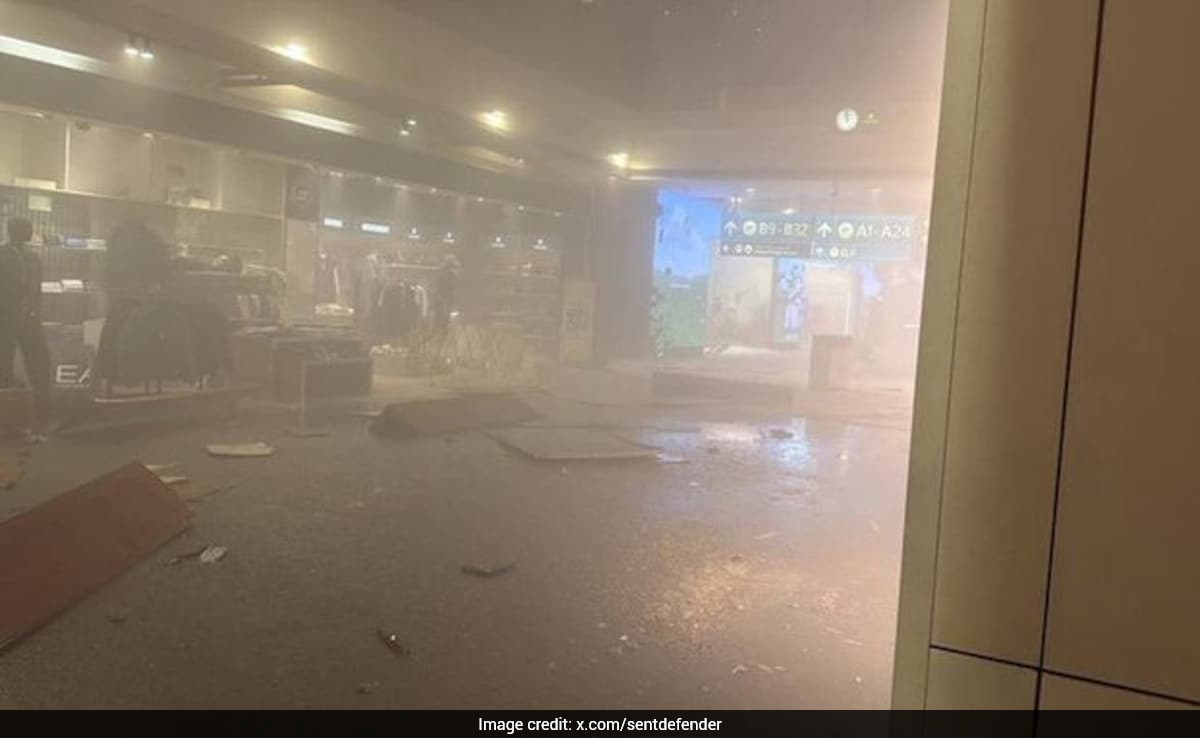Health Secretary Sajid Javid said the booster program would begin next week in England, with the rest of the country expected to follow suit.
Later on Tuesday, Prime Minister Boris Johnson is scheduled to reveal his plan for âliving with the virusâ and âgetting though the winter.â
Johnson is also expected to announce that his government will give up some of the sweeping emergency powers that Parliament granted under the Coronavirus Act. Those could include being able to temporarily shut down schools and businesses, impose restrictions on gatherings and events, and even to detain infectious people.
Over the weekend, the prime minister said that âextraordinary times required necessary but intrusive measuresâ but that he was now âdetermined to get of rid of any powers we no longer need because of our vaccine defences.â
The first booster jabs will be offered at mass vaccination sites, starting with those in nursing homes and those over 80 â and then proceeding down through the age groups, said health experts.
The booster will be given to those whose second dose of the two-dose regime was at least six months ago. Britain will offer a full dose of Pfizer vaccine or a half-dose of the Moderna vaccine as a booster.
Britainâs homegrown vaccine developed by Oxford researchers, in partnership with AstraZeneca pharmaceutical company, will not be used here as a booster.
The British health experts, citing ongoing studies, said that the messenger RNA vaccines â Pfizer and Moderna â give a better boost than AstraZeneca, producing a more robust antibody response.
âWe all want a normal winter life,â said Deputy Chief Medical Officer Jonathan Van-Tam, but he cautioned that the world was still in an active phase of the pandemic and the cold months could be âbumpy at times,â especially if this winter produces a bad flu season.
Other respiratory viruses are "highly likely to make their return,â he added, so the âaim of the game, the mantra if you like, is to stay on top of things.â
The World Health Organization has said that wealthy countries with large supplies of vaccines should hold off on giving booster doses until more countries in the developing world are offered first doses.
Van-Tam said that Britainâs vaccination program has stopped 24 million covid cases and averted 112,000 deaths, and he stressed that this was a âbespokeâ booster campaign, and said it was for this winter only, because once the world reached âa steady-stateâ with the virus, boosters might not be necessary.
Van-Tam said Britain is not alone in thinking about what it must do to give maximum protection to its vulnerable population this winter, with nine other countries already giving boosters, including the United States, while 18 more nations were considering it.
Wei Shen Lim, a leader of the Joint Committee on Vaccines and Immunization, said the evidence shows that especially among the over-50s that vaccine efficacy wanes over time. He gave the example of a vaccine that was 90 percent effective after a second dose at stopping symptomatic covid falling to 80 percent.
That 10 percent decrease in protection might not sound like much for an individual, but at a population level it could mean many thousands more hospitalized.
Infection rates in Britain are about 10 times higher today than a year ago. But deaths have plummeted as more people got jabs in arms. The country is currently recording more than 100 deaths a day, far lower than in January when there were over 1,200 coronavirus deaths a day. But while the vaccines have stopped many from getting seriously ill, deaths and hospitalizations have been climbing in recent months.
More than 80 percent of the British population aged 16 and older have been double vaccinated.
The move to start booster shots immediately comes just a day after British health officials confirmed Monday night that all children ages 12 to 15 will be offered a single dose of a coronavirus vaccine in England, overturning earlier advice that found the jabs were only of âmarginalâ medical benefit for youths.
Britain has lagged behind other wealthy countries, including the United States, which have been immunizing those 12 and older through most of the summer.
Just 10 days ago, Britainâs top vaccine task force recommended against vaccinating the 12- to 15-year-olds, saying the shots were safe and effective, but not really worth it for children and young teens, who rarely suffer from severe covid-19 â but would face the risk of very rare serious side effects from the jab.
The British chief medical officers said Monday that the risks to the children were not only medical and that a vaccine would help protect the young people from the âmassive impactâ of missing classes, caused when teachers or pupils who test positive must isolate at home for 10 days or when schools â as they have in the past â are closed to face-to-face learning.
Chris Whitty, chief medical officer for England, said at a news conference that there was âextremely powerful evidence that disruption in education ⦠has been extraordinarily difficult for children.â
Whitty stressed that their recommendation to offer vaccination was based only on what was best for the children, and not an attempt to protect parents, teachers or wider society from infection.
The decision for England to begin giving one dose of the Pfizer vaccinations at school â which is about 50 percent effective in protecting against symptomatic covid-19 â was confirmed by the vaccines minister, Nadhim Zahawi, to lawmakers on Monday night.
As in the case of booster shots, Wales, Scotland and Northern Ireland are likely to follow in coming days.
Both children and parents will be asked to give consent, following the law established in the 1980s that give competent young people a final say.
.png)











 English (United States) ·
English (United States) ·  Turkish (Turkey) ·
Turkish (Turkey) ·